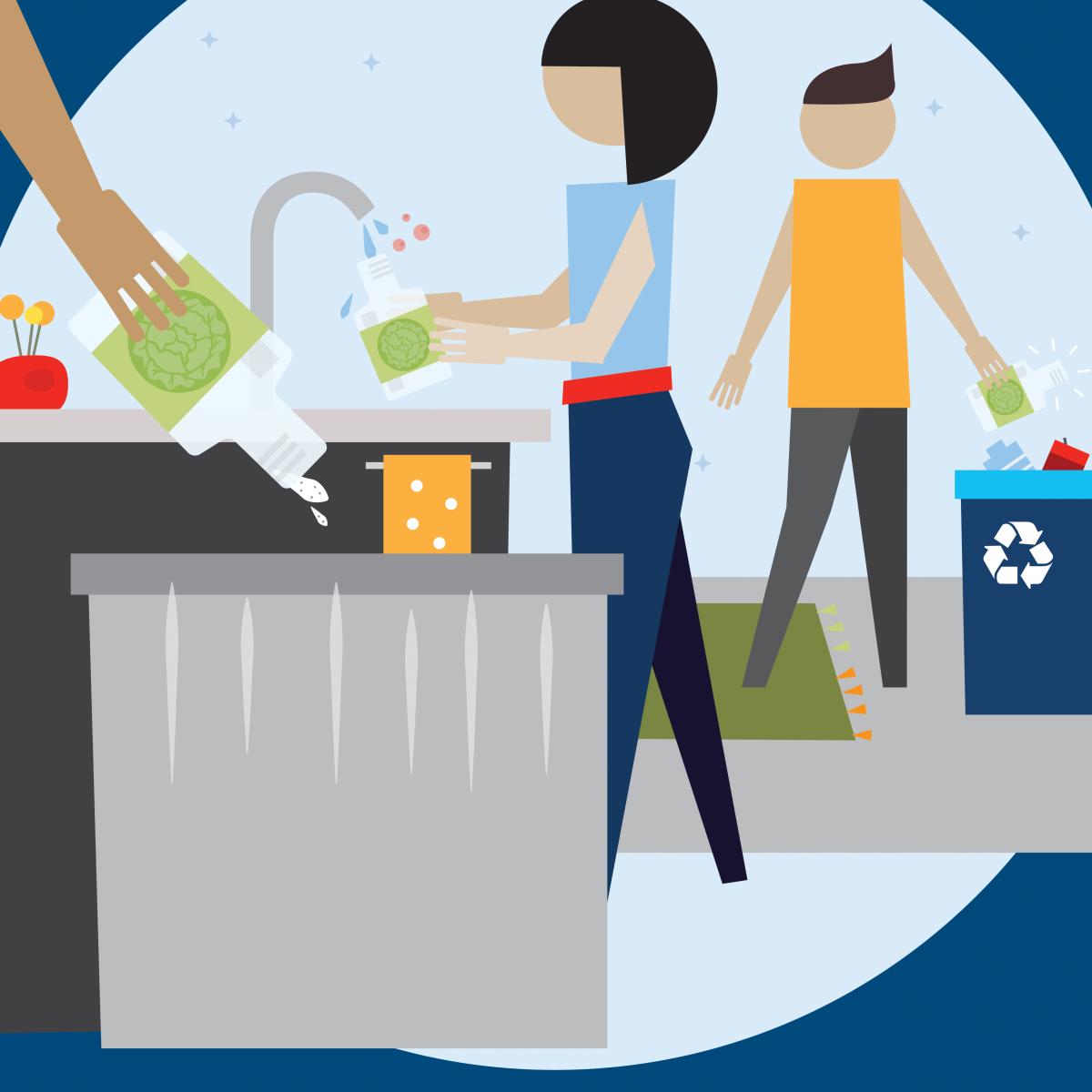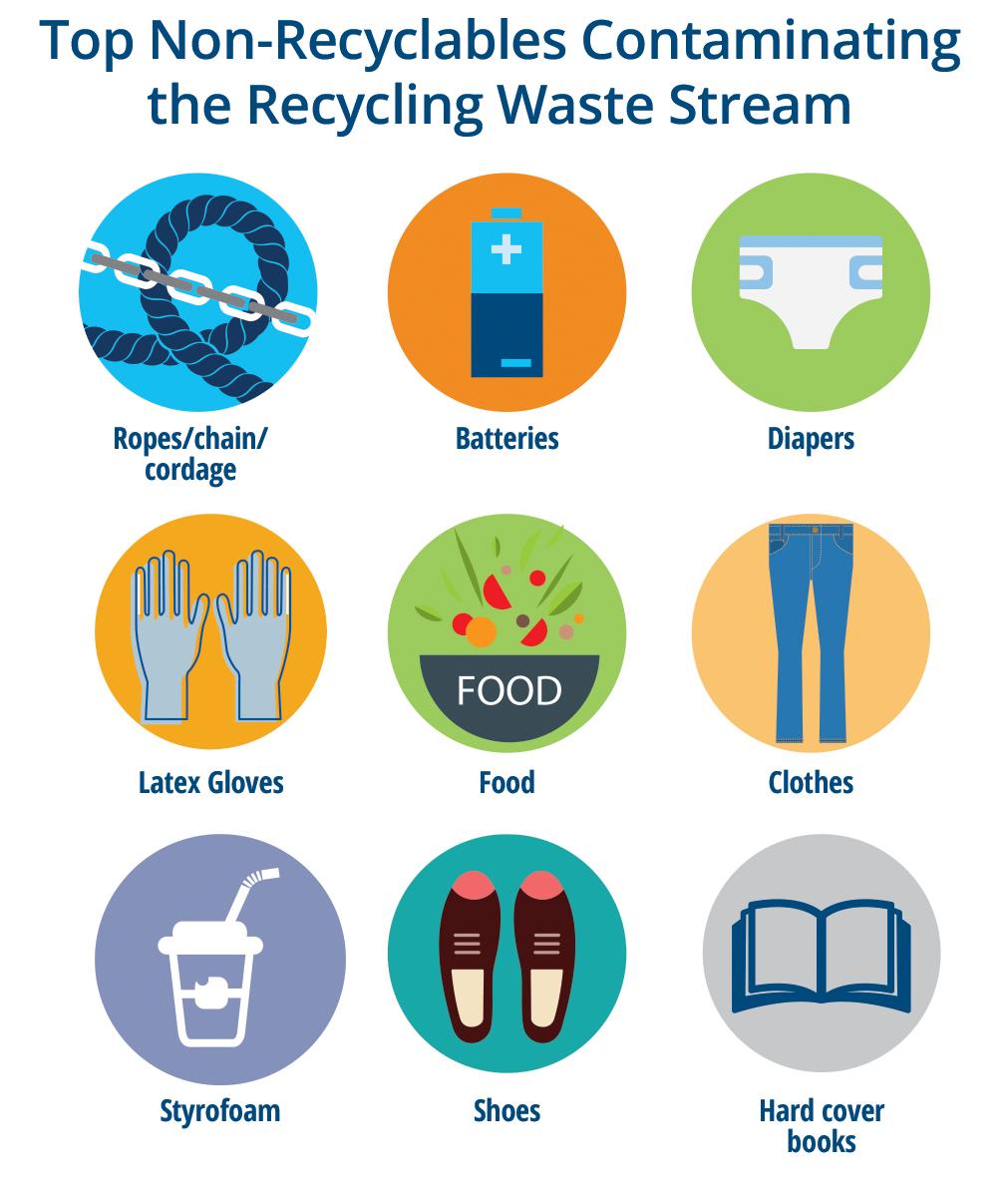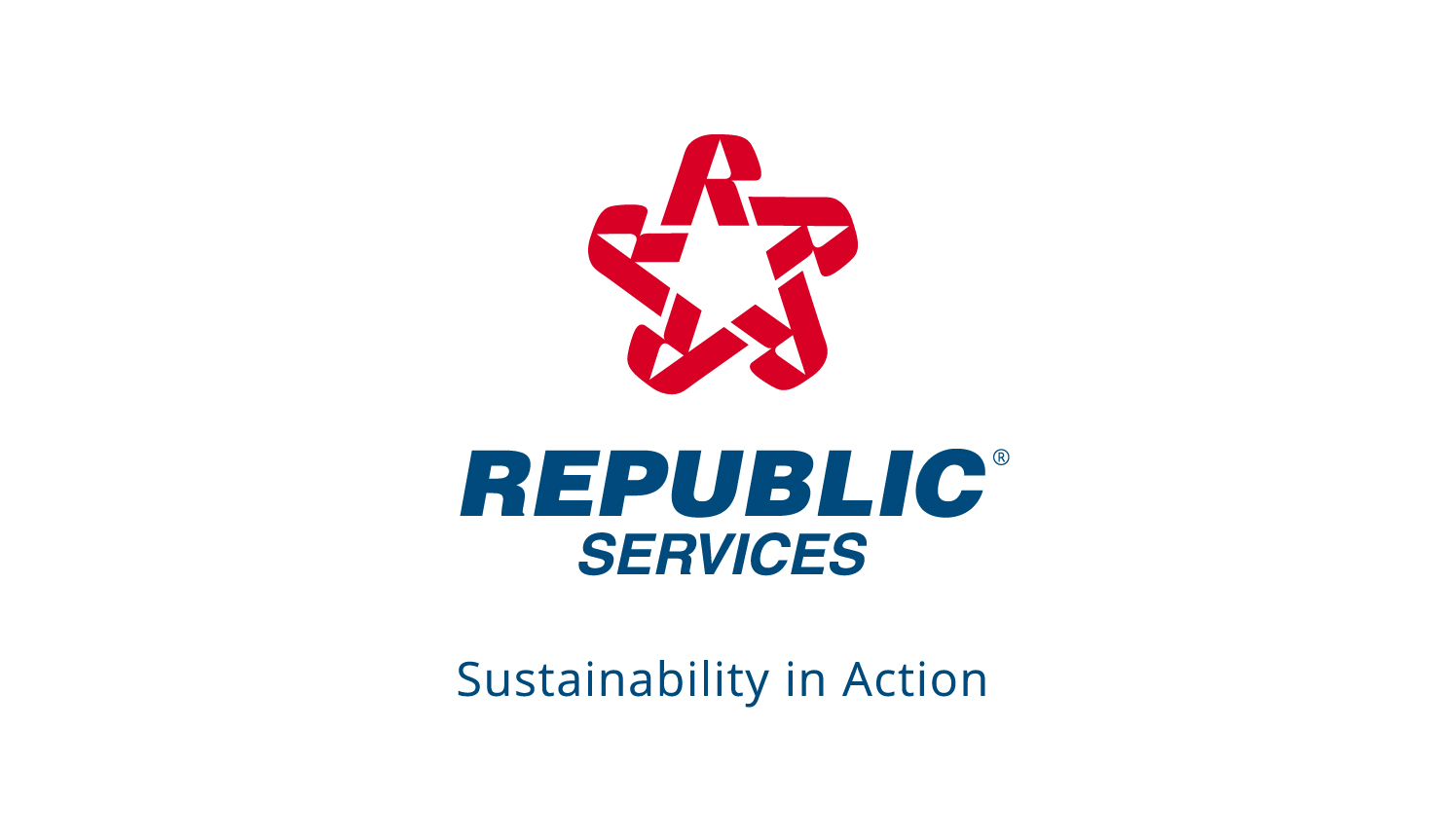A Durable Recycling Model
At Republic Services, we recognize the responsibility and opportunity we have in managing the nation’s waste stream to provide a source of recovered and renewable materials and energy to the economy. We are innovative and constantly exploring new options to capture value and energy from materials in the waste stream, while helping to ensure environmental responsibility and sustainability.
There has been much recent debate over the value of recycling. At Republic, we believe it’s there – for all our stakeholders. Republic is taking the lead in helping to build a new, durable recycling model that aims to deliver all the benefits of recycling for years to come. This involves working closely with our municipal and commercial customers to enable consumers to become better, smarter recyclers while also helping to ensure the economic viability and sustainability of recycling systems.
The Challenges of Recycling
The financial return on recycling, which is necessary for continued infrastructure growth, is influenced by two major factors: (1) recycling the right material, and (2) avoiding contamination, or unwanted substances such as residual food or liquid that can be harmful to the recycling process.
The role that consumers play in both factors is more important than ever before. Why? Because recycling programs – no matter how robust – will no longer work if they are not economically sustainable. At the same time, we know from surveys and direct feedback that recycling is critically important to our customers. We also know that there is a lot of confusion around what recyclables are accepted in local communities, particularly when many municipalities have differing recycling programs and material acceptance capabilities. This uncertainty leads to behaviors that can either diminish a consumer’s desire to recycle or cause them to place non-recyclables into a recycling container with the hope that it can be recycled. In fact, 1 in 5 consumers will place an item in a recycling container even if they are unsure it is recyclable.
For example, consumers know that the cardboard shipping box is recyclable, but what about a disposable coffee cup, a straw or a plastic ketchup bottle with a little bit of ketchup still in it? It is this confusion that leads to contamination of the recycling waste stream. That is why we are working with our customers to help them understand the levels of contamination found in the recycle stream, as well as the nature and source of the contamination. We also engage with these customers to help them better understand the business aspects of recycling, the risks and rewards associated with commodity value fluctuations and the true costs of processing the material. This transparency helps to incentivize all stakeholders to reduce material contamination while sustaining public enthusiasm for recycling within the community.
The Recycling Basics: Empty. Clean. Dry.
In an effort to decrease the residual material found in recyclables, thereby increasing the recovered commodity value, Republic Services has launched a new consumer education campaign.
With a focus on recyclable containers, the campaign – Empty. Clean. Dry. – encourages consumers to take personal action to remove residual content from containers prior to recycling. The campaign is being rolled out as a collaborative effort between Republic and its municipal customers on a market-by-market basis. Together, we are reinvigorating the economics of recycling to preserve its environmental benefits for generations to come.
1.Make sure your recyclables are EMPTY of their contents.
2.Make sure your recyclables are CLEAN of any residue.
3.Make sure your recyclables are DRY before placing them in a recycling container.
Together, we can change the way society recycles, make a lasting, positive impact in our communities and ensure the long-term viability of recycling for future generations.
To view Republic’s Sustainability initiatives, visit https://www.republicservices.com/sustainability and download the mobile-friendly version of the latest report at: https://www.republicservices.com/cms/documents/sustainability_reports/2016_Sustainability_Report_Mobile.pdf



